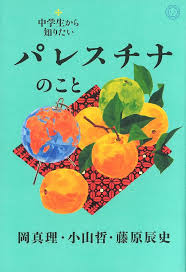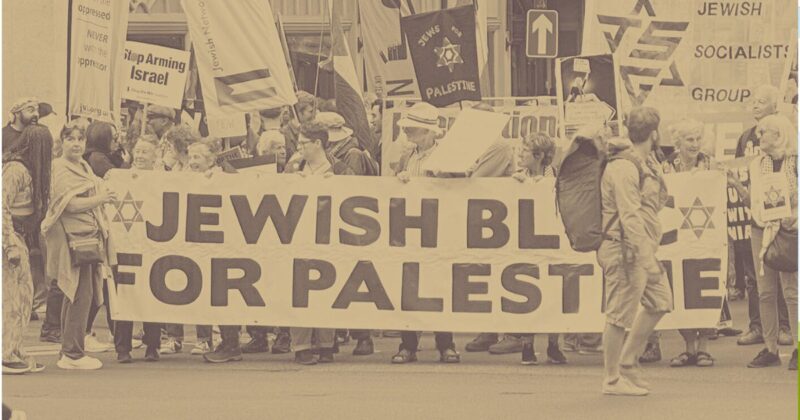Hi! It’s konkaz (@konkazuk).
The book I’m introducing today, which I would directly translate into English as “Understanding Palestine: A Topic to Explore From Around Secondary School Age“, was published in late July 2024 by Mishimasha.

This book is authored by three experts: Professor Mari Oka from Waseda University’s Faculty of Letters, Professor Satoshi Koyama from Kyoto University’s Graduate School of Letters, and Associate Professor Tatsushi Fujihara from Kyoto University’s Institute for Research in Humanities.
I knew that Israel was established after World War II, but honestly, I never gave it much thought and just accepted it with a casual ‘Oh, I see’ attitude.
But when you think about it, before the establishment of Israel, the land wasn’t empty. Palestinians had lived there and have suffered displacement and persecution since the country’s founding. Yet, during the October 7, 2023 incident, where Palestinians fought back, the news mainly focused on the tragedy of Israelis, portraying Palestinians as the villains.
While uncovering historical truths, this book’s purpose is to question our unsettling tendency to feel sorry for a moment when witnessing tragedies, only to go back to our everyday lives as if nothing happened, as long as we aren’t directly impacted.
This is an incredibly insightful book, packed with learning opportunities. Don’t miss the chance to read it!
Why should you read this book?

Like I said before, until recently, I was also someone who could momentarily feel sympathy but quickly move on with my life if it wasn’t personally impacted.
Reading news and newspapers was simply a form of gathering information, and looking back, even that information-gathering was probably driven by the fear of seeming ignorant about current events.
It was after reading James O’Brien’s “How They Broke Britain”, published following Brexit, that I began engaging with politics and history in a fresh way. O’Brien, a well-known LBC radio host and journalist, opened my eyes, leaving me deeply frustrated with both the Conservative Party’s actions and my own ignorance.
Learning the truths behind political and historical events that I had never known before was a wake-up call. That shock became the motivation to understand my place in the world and reassess my connection with others. It marked the start of my “rehabilitation” from the tendency to briefly feel pity or outrage and then resume life as usual.
This remarkable book, which reveals truths likely to shock you in many ways, serves as a gateway for anyone suffering from this “illness” to begin their journey toward rehabilitation.
Through engaging in this process of rehabilitation, you’ll gain the ability to reflect on issues such as ‘human rights‘, ‘social inequality‘, and ‘environmental challenges‘ in relation to your own position, ultimately realizing how continuing your current unconscious behaviors could lead to your own suffering in the long run.
To sum up, this is a profoundly valuable book. ✨
The introduction of this book is available to read on the publisher’s website!

One of the authors of this book, Mari Oka, a scholar specializing in contemporary Arabic literature and the Palestinian issue, wrote the introduction, which is, luckily, fully available on the publisher Mishimasha’s website 👉 “Minna no Mishima Magazine“.
Please take a moment to read it first.
.. How was it?
Perhaps a number of people haven’t yet linked ‘the Holocaust by Nazi Germany’ to ‘the Palestinian conflict’ in their thinking, I bet.
But you can’t just stop at ‘Oh, so that’s how it was!’ and leave it at that!
Without proactively engaging with this kind of information, you’ll end up being manipulated by the information the media puts out.
Recognizing the need for your own rehabilitation, I urge you to pick up this book and let the insights of historical humanities scholars truly shock you!
Experts from three different fields share their perspectives on the Palestinian issue.

What makes this book fascinating is how historians and humanities scholars from different fields passionately discuss the single issue of the Palestinian conflict from their unique perspectives.
With so many events happening every day and an overwhelming flow of information, it’s honestly impossible for us ordinary people to focus on just one area in our daily lives.
At this point, things are becoming clearer, as the ICC has issued an arrest warrant against Israeli Prime Minister Netanyahu for suspected war crimes. However, until recently, information like what Mari Oka describes in the earlier sections – such as:
The Israeli government justified its genocide in Gaza after October 7 by claiming acts such as Hamas killing 40 infants, some of whom were allegedly decapitated, or burning a baby in an oven, or committing mass sexual violence at an outdoor music festival. All these claims were later proven to be false testimonies by members of a civilian volunteer group responsible for collecting bodies.
– would have been buried under pro-Israel narratives in countries allied with Israel, including the U.S. and Europe, or those seeking good relations with them.
“Hamas’s brutal acts of terrorism” easily turns into “Palestinians are horrible!” in people’s minds, doesn’t it?
The term “Shionism” (pronounced “zaɪənɪzəm” in English) might still linger in your memory from history lessons, but without a proper understanding of it, one might mistakenly assume that all Jewish people are villains.
Moreover, the shocking details shared by Tatsuji Fujiwara about West Germany’s post-World War II dealings with Israel (West Germany continued to assist Israel in building a nuclear power plant for desert greening, even though they knew the funds were being redirected for the development of nuclear weapons ) will leave you stunned, thinking, “Seriously?” His unique approach of examining history through “food” is also a fresh perspective that we don’t often encounter in our day-to-day thinking.
And also, Tetsu Koyama, whose expertise is in Polish studies, shares an interesting personal experience of purchasing Polish books from a bookstore in Israel. His personal story adds an engaging element to the discussion and sparks curiosity.
The fact that the books the three professors read for their research are listed in the reference notes at the end of each chapter is both helpful and appreciated, too.
Anyway, if you want to regain a healthy mind by learning the truth, you can purchase it through this link below.👇
Finally, I sincerely hope that more books like this one appear in bookstores, eventually taking over the sections currently filled with outdated, capitalist-focused books. This way, many people will be able to dedicate more time to truly important matters. I also hope the English version is published and reaches Europe.
That’s all for today.
Until next time.
konkaz
*You can read this blog post in Japanese from the link below.
👉 「中学生から知りたいパレスチナ問題」レビュー:人文学者たちが問いかける心の在り方

